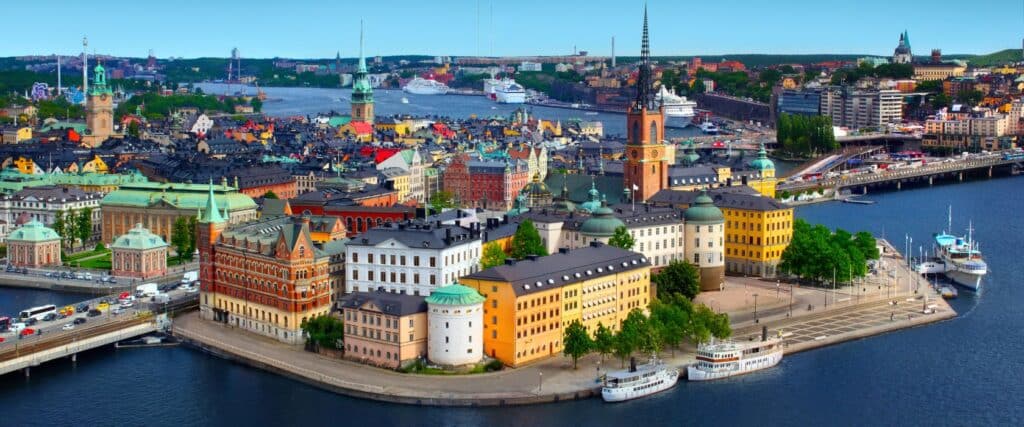Discover Your Perfect Study Destination
If you’re thinking of where to pursue your master’s degree, you’re in for an exciting journey: the world is more open than ever to international students. Overall, it’s not just about the university; it’s about the country, the culture, the career path, and your personal growth. While many rankings focus strictly on institutional prestige, the reality is broader: you need to think about cost, lifestyle, visa rules, post‑study work, and how well you’ll fit in.
For example, while the United States still attracts the largest number of international students, that doesn’t automatically make it the right choice for everyone. Evidenced by recent global shifts in mobility, students are increasingly prioritizing affordability and supportive immigration policies over a brand-name master’s degree.
In this article, we’ve considered the factors that will enter your decision‑making in 2026: the quality of education, cost of tuition and living, cultural experience, career and work‑study opportunities, and visa and immigration trends.
Factors Influencing Student Choices
When students ask, “Where should I go for a master’s?”, they’re really asking several questions:
In 2026, some challenging obstacles emerged: how easy it is to apply and secure a visa, whether programs are offered in English, how strong the post‑study work rights are, how safe and student‑friendly the environment is, and how future‑proof the field is. Factors under the microscope in 2026 will be tech/AI, sustainability, and interdisciplinary programs.
Thus, considering the best countries for a master’s degree means balancing these factors.
10 Study Hotspots for International Students in 2026
Here are ten countries to study a master’s (in no strict “rank” order because your priorities may differ) that stand out in 2026.
1. United States
Quality of Education: The U.S. remains home to many of the world’s top universities with powerful research opportunities, extensive resources, and a global reputation.
Cultural Experience: With its diversity of cultures, landscapes, and institutions, studying in the U.S. offers a wide‑ranging experience.
Cost: Tuition and living costs are often high, but there are many scholarships, assistantships, and funding options; planning ahead is key.
Career Opportunities: Strong networks, internships, and post‑study work options (for example, OPT in STEM) make it a compelling option.
Why it’s Hot in 2026: While other destinations are becoming more competitive and affordable, the U.S. still offers a unique depth of choice and global prestige. Yet the cost and student visa constraints mean it may fit best those willing to invest heavily and seek strong global brand value.
2. United Kingdom
Quality of Education: With institutions like the University of Oxford, Imperial College London, and others, the UK remains among the top countries for advanced study.
Cultural Experience: Rich history, multicultural cities, arts, business, science, all in one.
Cost: Costs remain high in major cities like London, but many universities offer scholarships and shorter programs (often one‑year master’s), which reduce living costs.
Career Opportunities: The UK offers a two‑year Graduate Route for post‑study work, and strong industry links, especially in finance, tech, and creative sectors.
Why it’s Hot in 2026: Visa and immigration policy remain a concern; some students are shifting to more affordable European hubs.
3. Germany
Quality of Education: German universities are highly regarded, with a heavy emphasis on research and innovation.
Cultural Experience: Germany offers a mix of historic cities, vibrant modern cultural life, and good infrastructure.
Cost: Many public universities charge little or no tuition fees for master’s programs to both EU and non‑EU students; living costs are moderate compared to other Western destinations.
Career Opportunities: Germany’s robust economy, especially in engineering, technology, and sustainability, provides solid career prospects. The number of programs taught in English is growing.
Why it’s Hot in 2026: Germany continues to gain in appeal as a “smart value” destination for a master’s abroad.
4. Canada
Quality of Education: Canadian universities have strong research credentials and an international outlook.
Cultural Experience: Safe, welcoming, and diverse, Canada consistently reports high student satisfaction.
Cost: Tuition can be more affordable than comparable U.S. programs; living costs are variable (depending on the city).
Career Opportunities: With generous post‑study work permits and clear pathways to permanent residency, Canada is especially attractive.
Why it’s Hot in 2026:: For students seeking settlement options and long‑term prospects, Canada is a strong contender.
5. Australia
Quality of Education: Australian universities enjoy excellent global rankings and strong programs, especially in STEM, business, and health.
Cultural Experience: Outdoor lifestyle, multicultural cities, strong student support systems.
Cost: Living costs in cities like Sydney or Melbourne are high, but post‑study work rights and scholarships help.
Career Opportunities: Australia has improved pathways for international graduates, and its job market remains robust in key sectors.
Why it’s Hot in 2026: While still attractive, students must carefully weigh cost vs return and stay abreast of visa policy changes.
6. The Netherlands
Quality of Education: Many high‑quality English‑taught master’s programs, especially in engineering, sustainability, and business.
Cultural Experience: Open society, strong international student infrastructure, central European location, and many programs are in English.
Cost: Tuition and living costs are moderate as compared to the U.K. or the U.S.
Career Opportunities: Strong ties with industry, especially in tech, logistics, and creative industries; good post‑study visa arrangements.
Why it’s Hot in 2026: The Netherlands increasingly appears in lists of top destinations because of value and student experience.
7. Ireland
Quality of Education: Irish universities offer strong research, especially in tech/finance, with growing international appeal.
Cultural Experience: English‑speaking European country with vibrant student life and friendly environment.
Cost: Living costs are rising but remain somewhat lower than in many U.K. cities; English‑taught programs eliminate the language barrier.
Career Opportunities: Ireland hosts many multinational tech/finance firms, offering internships and job prospects; post‑study work rights are favorable.
Why it’s Hot in 2026: Good pick for English‑based studies in Europe with a strong balance of quality and lifestyle.
8. Spain
Quality of Education: Spain’s universities are expanding their international programs; quality continues to improve.
Cultural Experience: Warm climate, rich culture, vibrant nightlife, and bustling student life.
Cost: Living and tuition costs in many Spanish cities are lower than in many Western European alternatives.
Career Opportunities: Spain’s growing sectors, including tech start‑ups, renewable energy, and tourism, as well as its European location, provide opportunities.
Why it’s Hot in 2026: Spain is increasingly seen as a “smart choice” for students who want high quality education in Europe at a manageable cost.
9. France
Quality of Education: Strong research universities and Grandes Écoles, many English‑taught master’s programs, especially in business, management, and STEM.
Cultural Experience: Rich cultural experiences, gastronomy, arts and a central location in Europe.
Cost: Non‑EU tuition is rising in some cases, but scholarships and support are available; living costs vary by city.
Career Opportunities: France’s corporate ecosystem and European market access make it a good destination for international careers.
Why it’s Hot in 2026: As Europe continues to gain appeal (especially for value‑conscious students), France is solid for those willing to adapt to the French cultural/language context or select English‑taught programs.
10. Japan / South Korea (Emerging Asian Hubs)
Quality of Education: Japan and South Korea are investing heavily in internationalization of their higher‑education systems and host strong universities offering English‑taught graduate programs.
Cultural Experience: Unique blend of tradition and cutting‑edge tech culture; opportunity to live and study in dynamic Asian societies.
Cost: Costs can be high, but many scholarships for international students exist; living in some cities may be less expensive than in top Western cities.
Career Opportunities: Strong technology, engineering, and innovation ecosystems; growing support for international graduates.
Why it’s Hot in 2026: These destinations are less mainstream than Western favorites but increasingly attractive for students in STEM, tech, and those seeking future‑oriented global careers.
Choose Your Destination, Change Your Future
Choosing the best country for a master’s degree in 2026 is not just about the university ranking. It’s aligning your ambitions, budget, lifestyle, and future‑career goals. Each of the ten destinations above offers unique strengths, as well as trade‑offs.
Match your personal goals (such as affordability, post‑study work, English‑taught programs, and cultural experience) against the facts and your gut feeling. Do you seek a global brand name degree or value for money? Is a vibrant city or a quieter study environment ideal for you? Are you planning to stay and work abroad, or return home with an international credential?
Whichever country you pick, be sure to plan ahead. Check application deadlines, language requirements, scholarship availability, visa rules, job market trends, and your field’s demand in that country. With the right preparation and mindset, studying abroad can be a life‑shaping experience, opening doors not just academically but personally and professionally. So take the next step, explore these destinations, talk to current students, contact universities, and envision where you’ll thrive most.
Which Country Is Best For A Master’s Degree?
The journey to earn your master’s degree abroad goes beyond the academic, it can change the trajectory of your life. Choosing where to study is a complex decision. It involves education quality, cost, culture, career, language, and your personal growth. In 2026, destinations like the United States, the United Kingdom, Germany, Canada, Australia, the Netherlands, Ireland, Spain, France, and rising Asian hubs all present strong options.
Choose the one that aligns with your ambitions, finances, and lifestyle. Do your research, ask questions and plan for the full experience. After all, pursuing a master’s abroad isn’t just about the degree, it’s a launchpad for your future.
You might also like…
What are the Benefits of a Master’s Degree?
Are you a generalist or a specialist? Becoming an expert in a particular field can unlock exciting career opportunities with the benefits of a master’s degree. Whether you want to stand out in the job market, aim for higher-paying positions, or make a career transition, a master’s degree is worth considering.
Read more







